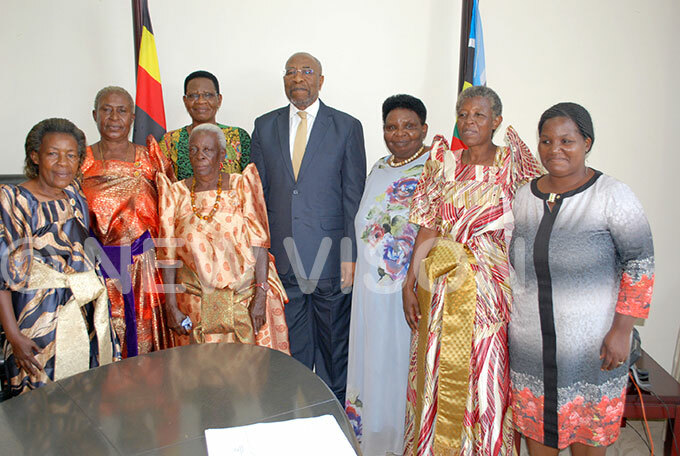Elderly want SAGE beneficiary age lowered to 70
Recently a group of six elderly people met the rt honorable Prime Minister of Uganda, Ruhakana Rugunda to discuss patent issues affecting their wellbeing.
Recently a group of six elderly people met the Rt honorable Prime Minister of Uganda, Ruhakana Rugunda to discuss patent issues affecting their wellbeing. Below is their submission.
Elderly speak out
"We acknowledged the government's effort to roll out the Social Assistance Grants for Empowerment (SAGE) Scheme to all districts for older persons aged 80 years and above. However, we requested that the SAGE beneficiary age be reviewed," said Canon Jolly Babirukamu, 69 as she began her submission.
"Putting the SAGE beneficiary age to 80 years and above will leave out a huge population of vulnerable elderly. We request that the age bar be lowered to 70 so that they can catch more people.
Otherwise considering the age of 80, captures only about 10% of the elderly population in an entire village" Babirukamu noted and added; lowering the age bracket will cover many financially helpless elderly.
In addition; some elderly do not have identity cards, so accessing the money might be a challenge.
Babirukamu who is the chair for the national older women advocates of the Grandmothers Consortium in Uganda said the elderly have not benefited from operation wealth creation and other economic skills empowering programs due to limiting factors such as advanced age.
"The young people the first to get farm inputs and by the time the elderly get there, they find everything taken," she noted and urged the government to put in place a directive on affirmative action for distribution of inputs to enable equal access by the elderly.
Bibairukamu is among the six elderly women belonging to the Grandmothers Consortium who recently held a meeting with the Prime Minister of Uganda, Ruhakana Rugunda at his office to discuss issues affecting their wellbeing and their grandchildren.

Elderly pose for a photo with the Prime Minister Ruhakana Rugunda
Rugunda said the government had challenges with implementing the program at the age of 65 because of limited funds. Consequently, SAGE remained in a few districts.
"To mitigate the problem government resolved to focus on the elderly aged 80 and above because they are vulnerable. But once sufficient resources are available the age bar will be lowered," he said.
Rugunda also noted that since many elderly people aged 80 and above may not have identity cards, the government is working with the department of internal affairs so that the elderly can get identity cards.
Mary Babirye aged 83, a resident of Nsanve in Mukono district noted that often elderly people trek long distances to health centers with some carrying grandchildren. Yet when they get to the facilities they queue up and some end up not getting medication.
Babirye requested the ministry of health to set up special desks for the elderly to easily access medication and treatment without queuing up.